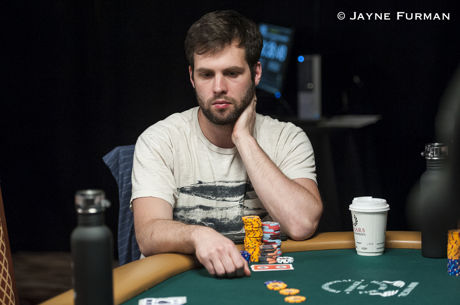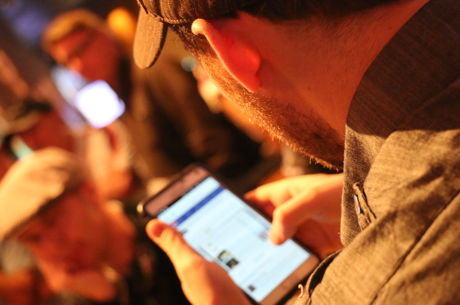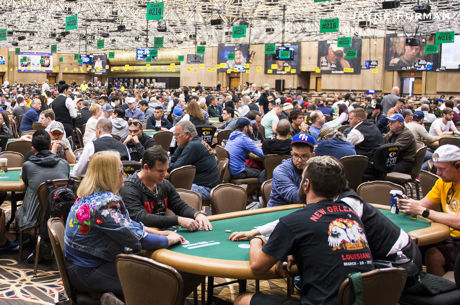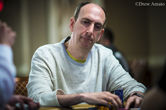Is it Cheating? Unethical? Perfectly Fine? You Decide
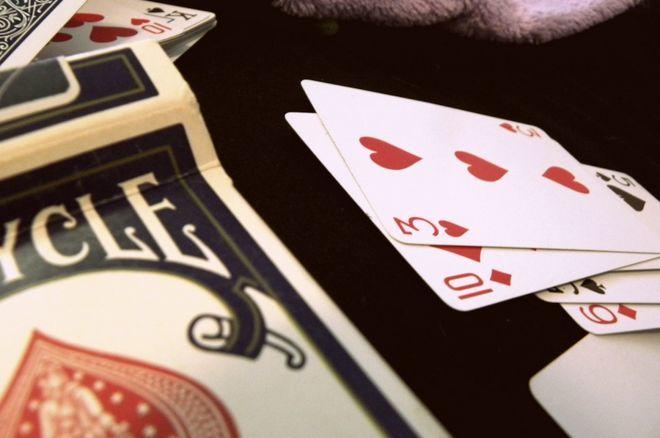
When I first went out to Las Vegas for the World Series of Poker in 1994 �� having never played in "Sin City" before �� I was really concerned that I might be cheated by local card sharps. It never happened (that I know of). Even so, having that worry made me think long and hard about my own practice with regard to cheating or potentially unethical behavior.
Since that time, I've had an opportunity to get to know many in the Las Vegas poker world. I've talked with them repeatedly on this subject and come up with a quiz that they've helped me answer.
The quiz consists of 15 questions about various live poker scenarios which I'm inviting you to consider and answer. If you'd like, share your responses to some or all of the questions in a comment below, and I'll incorporate them into a future article about what PokerNews readers think about what is and what isn't cheating and/or unethical behavior.
For each of the questions that follow, answer in the poll by choosing one of the following:
- cheating
- not technically cheating, but unethical
- perfectly fine
As you answer, you'll see how your choices compare to others as the poll results show. At the bottom of the quiz, I'm sharing my responses.
1. You're sitting in a $1/$2 no-limit hold'em game next to an older gentleman to your right. When he picks up his cards he does not shield them from your view, flashing them to you unintentionally. Given that you are right next to him, when you looked to the right you saw that he held 5x5x. He raised in late position after everyone had folded. You're on the button. Though you would probably have folded your hand of 6x6x in this position, you put in a substantial raise.
2. The same situation as above, but you intentionally lean a bit to your right to view his cards.
3. You're sitting next to the same gentleman above. He doesn't flash his cards to you fully, but you notice that he doesn't protect them at all. After a hand is over, you move your chair a little closer to him hoping to catch a glimpse on a future hand.
4. You left the game to have dinner. You come back and see two seats open, one to the immediate left of this older gentleman card-flasher, the other directly opposite him. You take the chair next to him, hoping to take advantage of free card information.
5. You are in a self-dealt home game. A few of the players deal in a way that lifts up the outer corner of the card, making it sometimes visible to a player sitting opposite if he's not too tall. When you pick your seat at the beginning of the night, you try to position yourself opposite one of them, and then you grab the smallest chair at the table because it seats you lower, giving you a better chance at seeing an exposed card.
6. You and a poker buddy decide to share a bankroll for the night, pledging to divide your winnings or losses between yourselves �� share and share alike!
7. You and your buddy drive to a casino together. The two of you make a pact to play your best and tightest game and pledge, good-naturedly, to believe each other if you're betting or raising.
You are seated at the same table. Your buddy, you, and a third player are in a hand that goes to the river. Your buddy is first to act and makes a large bet. Your other opponent, in between you both, thinks for a long time then calls. You have a very good hand and would normally call in this situation. But you harken back to what you and your buddy pledged before sitting down. You decide to fold and save a large bet.
Surprisingly, your other opponent had the nut hand and won. He obviously had hesitated hoping to draw you in, but your conversation with your buddy before the game kept you from calling.
8. You notice a bend in the corner of an ace. It's the only mark you've noticed all night. You don't tell the dealer, hoping you might use the information later to your advantage.
9. You're up against an opponent on your right. The board is 9?9?8?J?3?. You have Q?J?. Your opponent has been betting like he either had a big AxXx hand or a high pair. He makes a larger than pot-sized bet. You figure he's either got a monster or he's continuing with a bluff, probably with AxKx. You notice the bend in the corner of one of his cards that you had seen before on an ace. You use that information and make a call. He does indeed have AxKx, and you win a huge pot.
10. You're playing online. You have a poker coach who is viewing your hand as you play it. He is giving you suggestions and advice, though you are the only person actually making the betting action.
11. You're playing in your home game. You spend 10 hours looking through the two lightly-used plastic decks you're giving to your professional dealer for the night, trying to spot any imperfections that you can to gain an advantage in the game. Looking very closely you manage to detect five marks. But when you are actually playing the game you can't spot them at all, so all your work gives you no advantage.
12. You have a buddy who thinks he's a professional poker player. He wears all the gear including some sunglasses. But his sunglasses also diminish his vision, so he either has to hold up his cards close to his face or lean down close to the table to see them. In either event, when he does so, when you look carefully, you can sometimes see the cards he's staring at reflected in his sunglasses �� at least to the point of being able to distinguish if the card is paint or an ace. You don't tell him about it, but take advantage of these reflections to demolish his stack.
13. You're sitting next to the professional dealer in your poker room. She inadvertently flashes the bottom card right before the cut. You see it, and have a rough idea of where it will be in the deck during the play of the hand. Sure enough, you figure it for the flop, turn or river, and as it turns out the card will greatly help your hand. You alter your play to take advantage of this.
14. During the play of a hand you get up briefly to grab a drink from one of the servers in the poker room who is walking by. In so doing you unintentionally spot the hole cards of one of your opponents. Using this information, you stay in the hand after she shoves, knowing that she can't beat your mediocre hand.
15. You're in a cash game and give the dealer $100 �� five $20 bills �� so you can buy $100 in chips. The dealer for some reason misreads one of the $20 bills and gives you $180 in chips. You say nothing, double up your stack, cash out, and leave.
My answers:
1. C �� Fine, but with the caveat that you should probably give him a warning first.
2. A �� Cheating for sure.
3. B �� Not strictly cheating, but surely not fine.
4. C �� I think this is fine, but some others think it is unethical. Consensus is that it's not cheating.
5. B �� Unethical. And you should tell the dealer.
6. C �� Fine, if it doesn't affect how you play.?If it does, it's cheating.
7. A or C �� It depends on the strength of your pledge.?If the pledge were really a plan to collude, it would be cheating.?But people "pledge" to play their best game all the time and don't.?Only you know what this pledge really was.
8. A �� Cheating.
9. A �� Cheating, the only exception being if you said something about this but the dealer refused to remove and replace the marked card, in which case it's fine.
10. C �� As a practical matter it's impossible to police this online, and so it has become accepted practice.
11. A �� Cheating. You're?trying to take?advantage of marked cards, even if you aren��t very good at it.
12. C �� I think this is fine, but there was no consensus among those I consulted.?Some think it is at least unethical unless you first warn the guy.
13. B �� Unethical, if you don't inform the dealer of a careless cut.
14. A �� Cheating, plain and simple.?You're taking advantage of information you've learned improperly.
15. A �� Cheating.
I checked in with a number of people in the poker world, including Jan Fisher, to assemble the answers in this article. I am eager to learn if you each agree or disagree with our judgments. As I say, let me know what you think in the comment below.
Ashley Adams has been playing poker for 50 years and writing about it since 2000. He is the author of hundreds of articles and two books, Winning 7-Card Stud (Kensington 2003) and Winning No-Limit Hold'em (Lighthouse 2012). He is also the host of poker radio show House of Cards. See www.houseofcardsradio.com for broadcast times, stations, and podcasts.

